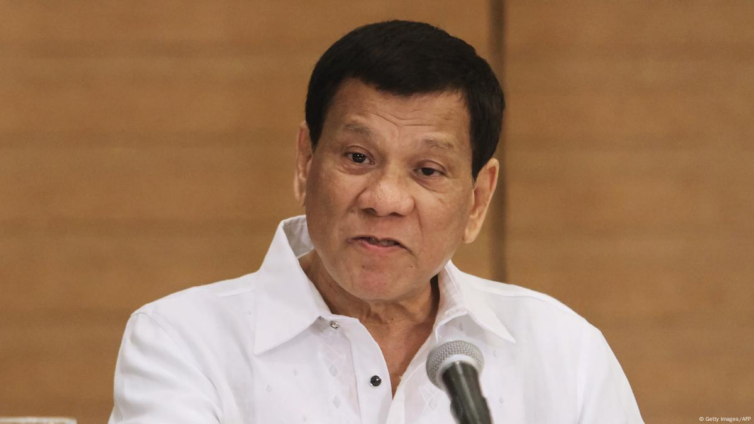Just short of his 80th birthday, Rodrigo Duterte, a man who once vowed to purge his country through a bloody anti-drugs and crime campaign, found himself outmanoeuvred and in custody.
The former president was met by Philippines police as he arrived in Manila on a flight from Hong Kong, where he had been rallying support for his candidates for the upcoming mid-term election among the large Filipino diaspora there.
The much-talked-about warrant for his arrest from the International Criminal Court (ICC) was, it turned out, already in the hands of the Philippines government, which moved swiftly to execute it.
A frail-looking Mr Duterte, walking with a stick, was moved to an air force base within the airport perimeter. A chartered jet was quickly prepared to take him to the ICC in The Hague.
How had this happened? How had a man so powerful and popular, often called "the Trump of Asia", been brought so low?
In vain, his lawyers and family members protested that the arrest had no legal basis and complained that Duterte's frail health was being neglected.
President Marcos now appears to have moved deftly to neutralise his main political rival. But his strategy is not risk-free. The Dutertes remain popular in much of the country, and may be able to mobilise protests against the former president's prosecution.
Sara Duterte has issued a statement accusing the government of surrendering her father to "foreign powers" and of violating Filipino sovereignty.
An early test of the support enjoyed by both clans will be the mid-term elections in May.
In his comments to journalists after the plane carrying his predecessor had taken off from Manila, President Marcos insisted he was meeting the country's commitments to Interpol, which had delivered the ICC.
But he was coy about the fact that it was an ICC warrant he was executing, given that many Filipinos will question what the ICC's remit is in a country which has already left its jurisdiction.
It is not risk-free for the ICC either. The court is an embattled institution these days, with the Trump administration threatening to arrest its top officials should they travel to the US, and few countries willing to extradite those it has indicted.
Getting former President Duterte to The Hague might therefore look like a welcome high-profile success.
But there was a warning, from China – admittedly not a signatory to the ICC and currently at loggerheads with the Philippines – not to politicise ICC cases.
This was a thinly-veiled reference to the fact that this case, which is supposed to be about accountability for serious international crimes, has ended up playing a decisive part in a domestic feud in the Philippines between two rival political forces.
Latest Stories
-
What happened to crashed Air India flight? A JoyNews analysis
2 hours -
REMAPSEN celebrates 5 years of championing health and environmental awareness across Africa
4 hours -
I served with diligence and honesty; I am willing to defend my NSS tenure in court – Mustapha Ussif
4 hours -
Afenyo-Markin challenges Ahiafor’s sub judice ruling, calls it ‘dangerous precedent’
6 hours -
Mahama instructs Armed Forces to escort all vehicles in Bawku area
7 hours -
African artists, global awards, and the fight for visibility
7 hours -
This Saturday on Newsfile: GRNMA strike, ORAL probe into NSA, shut down of 64 radio stations
7 hours -
19 arrested in raid on drug and robbery dens at Kasoa Dominase, Onion Market
8 hours -
Luv FM High Schools Debate heats up as top schools advance to Round of 16
8 hours -
Asantehene urges chiefs to offer lands as equity for farming
8 hours -
GhanaFest Alberta 2025 launch ignites diaspora business momentum
8 hours -
22-year-old hearing-impaired man allegedly dies by suicide after rape accusation
9 hours -
CAETE 2025: MDF seals 10k jobs deal with China’s Yixintai Group
9 hours -
Climate Change: AGN Chair emphasises importance of Africa’s unity in global negotiations
9 hours -
TV stations risk prosecution over pirated content – Copyright Office warns
9 hours

